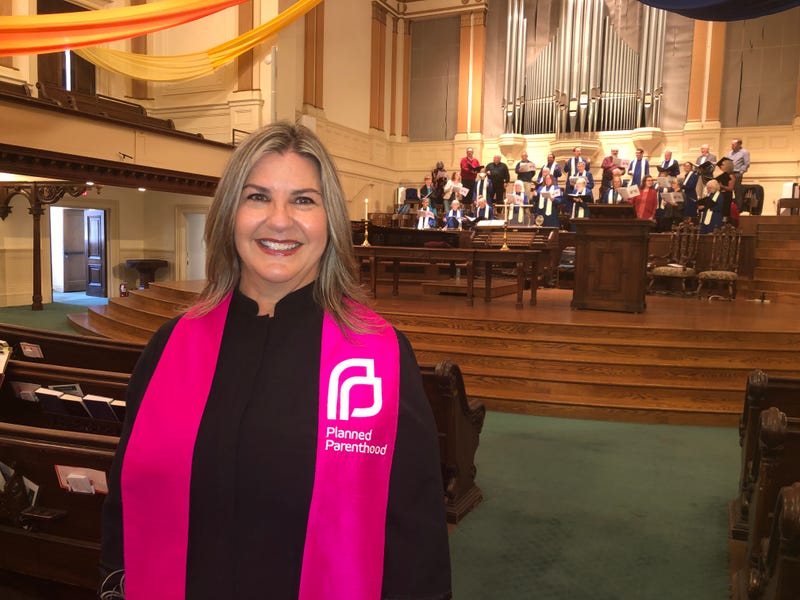
With the dubious one-year anniversary looming for the Supreme Court’s reversal of federal abortion protections, what is the current state of reproductive rights on a statewide level?
Abortion remains legal in California, having been enshrined in the state constitution after voter approval last November. But legality doesn’t equate to full acceptance, and access to abortions can be hard to come by in the state’s more rural areas.
For that reason, one activist is urging those who are pro-choice to remain vocal about their support for abortion rights.
“We just trusted that the law was going to be on our side and we could be quiet,” said Marci Glass, head pastor at Calvary Presbyterian Church. “And I think that silence was deadly. [The Dobbs vs. Jackson Women’s Health Organization decision], I think, revealed the folly of that polite silence.”
Glass said she can trace her abortion activism back to her own unplanned pregnancy while in college.
“I was a good church kid. That wasn't what was supposed to kind of happen and how I thought I had my life planned out,” she said. “It was my church, my pastor who was helpful to me when I was trying to decide what I wanted to do.”
Glass chose to give birth and give the child up for adoption.
“It was impossibly hard,” she said. “It was so painful. And it’s probably 98% of why I’m a pastor. I received such grace that year.”
She wishes to share that grace with other women who may find themselves in a similar situation, dealing with an unplanned pregnancy, heads filled with more questions than answers. As a member of Clergy for Reproductive Justice, she said she hopes to inspire abortion rights supporters to speak out, especially in states where abortion remains legal.
“It can be easy to forget that there are people actively trying to legislate harm right now,” Glass said.
Those harms are not going unnoticed. Rather they are being documented by a group of Bay Area researchers.
Dr. Daniel Grossman, a UC-San Francisco obstetrics and gynecology professor, has been diving into the numbers from abortion-restricted states as it relates to medical outcomes since the Dobbs verdict took effect.
Through anonymous case studies, Grossman’s team looked at cases where the medically recommended care would have been different before Dobbs.
“These were cases where doctors felt like their hands were tied because of these restrictive laws banning abortion,” he said. “And the problem is that medicine isn't black and white. There's a lot of gray there.”
Grossman sees a pattern of serious health complications triggered by abortion bans: Infections, hemorrhaging, ectopic pregnancies, unnecessary hospitalizations getting treated by doctors unsure of what’s legal and haunted by the pain and risk that their patients experienced.
“It’s incredibly heartbreaking to read them,” he said. “In some ways, I don’t think I was prepared for how heartbreaking they were going to be.”

